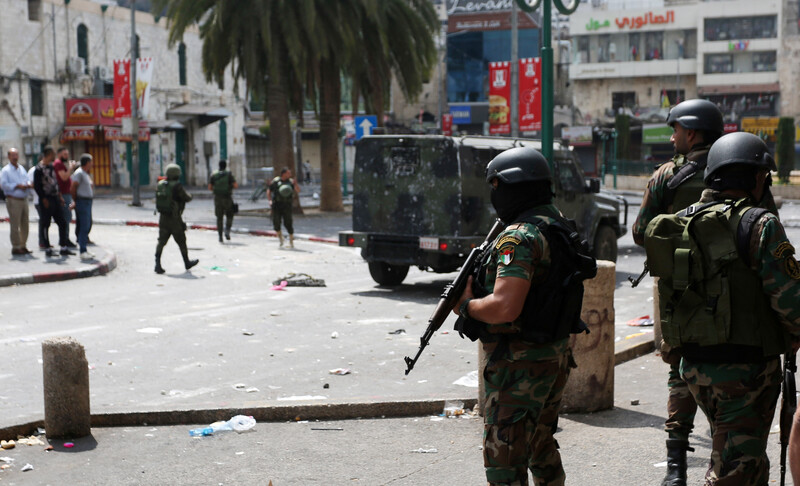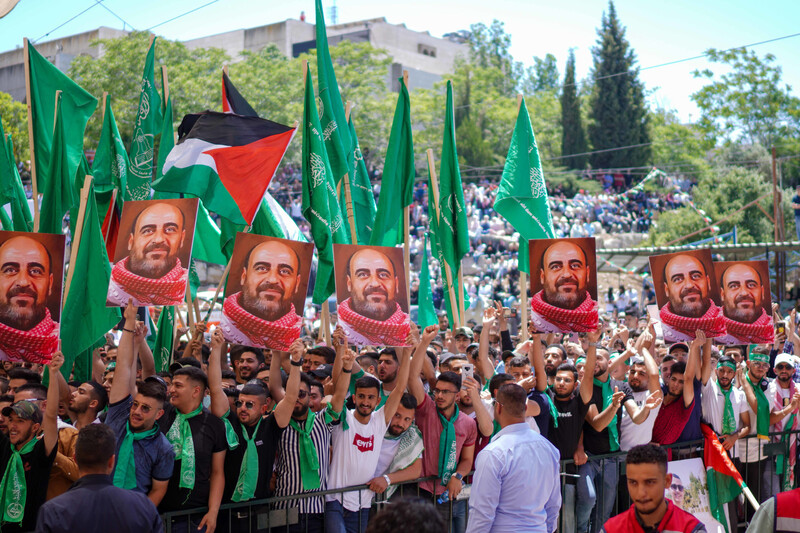Rights and Accountability 4 July 2023

The aftermath of a Palestinian protest against the Palestinian Authority’s repression of Palestinian resistance in Nablus, September 2022.
APA images“We need the Palestinian Authority,” Israeli Prime Minister Benjamin Netanyahu says. “We cannot allow it to collapse.”
Israeli press outlets reported last week that Netanyahu told a closed session of a parliamentary committee that everywhere the Palestinian Authority is “successfully operating, it does our job for us.”
It is the most stark admission by Israel yet that the Palestinian Authority is a collaborationist entity, whose main purpose has been to help maintain the Israeli occupation of the West Bank.
As Israeli satellite channel i24 explained in its report on Netanyahu’s admission, although there are almost daily acts of Palestinian resistance in the northern West Bank in towns such as Jenin and Nablus, armed resistance in areas like Ramallah and Bethlehem is relatively rare.
Why?
“The Palestinian Authority,” i24 explained. “Wherever it is strong and visible, things are relatively quiet. Wherever it is weak and unseen, terror [sic] erupts.”
The Palestinian Authority often arrests, tortures and imprisons Palestinian resistance fighters, activists and even journalists, making Israel’s job far easier.In September last year, a Palestinian man was killed when Palestinian Authority security forces raided the occupied West Bank city of Nablus to make arrests of resistance fighters on Israel’s behalf. Large protests followed.
Swathes of the West Bank have been almost ungovernable for a long time.
In the committee session, Netanyahu had been discussing the future of the Palestinian Authority. Unelected Palestinian Authority leader Mahmoud Abbas – who is massively unpopular with Palestinians – is now 87 years old and has no clear successor.
It has long been feared that the Palestinian Authority could collapse when he dies. But the Israeli government is determined that shouldn’t happen.
“We are ready to help it financially,” Netanyahu told the committee. Israel is “preparing for the day after Abu Mazen,” Netanyahu reportedly said, referencing Abbas’s paternalistic nom de guerre.

Ahead of student council elections at Birzeit University in the West Bank, Palestinian students hold up portraits of Nizar Banat, 17 May 2022.
APA imagesSince it was founded in 1994, the Palestinian Authority has been a brutal collaborationist force.
Abbas once described security collaboration with Israel as “sacred.”
In 2021 there were weeks of protests after Abbas’ goons beat to death one of his most prominent critics, Nizar Banat, whose influential Facebook videos often denounced collaboration.
In May this year, The Electronic Intifada revealed leaked documents showing the extent of British intelligence penetration of the Palestinian Authority’s armed forces, including “daily direction” from a UK military officer.
According to the account of one of the British army officers overseeing the Palestinian Authority, they were trained in conducting “raids into Palestinian refugee camps,” which he claimed are “lawless sanctuaries for criminals and armed political activists.”





